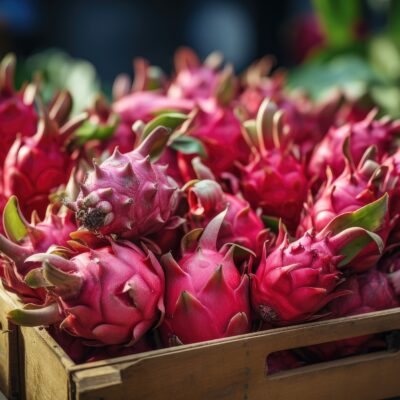Toldot’s Insight: Nurturing Unique Qualities in Each Child
In every parent’s handbook there lies the common goal of raising a child for future success and happiness. In our greatest endeavor, we create a symphony that does not flow because it is not theirs, it’s within a box, broken tunes shaped by our ideas of what we aspire our children to be. Instead, as parents we need to listen to our child’s symphony. There is a melody their soul wants to play. A parent’s role is to nurture that melody, fostering the flourishing of their strengths, igniting their passions, and allowing their individuality to reveal a tune in the world. There are two essential components to help our child to future success: unconditional love and nurturing unique qualities in each child.
In parsha Toldot we hear the chromatic melody of Esau and Jacob. With its tension filled harmony, nonetheless, Toldot gives us insight on parental guidance, the impact of family dynamics and how to provide a supportive environment to nurture children’s strengths and interest.
Toldot’s Lessons In Parenting
At the heart of Parsha Toldot is favoritism. Isaac loved Esau, and Rivka loved Jacob. Rivka and Isaac demonstrated preferences for different qualities in their children, this is clear in the beginning. Parents of many children can relate to this concept easily. It is our nature to like people like us, to relate more to children with qualities like ours or with those that are easier to guide. Did Rivka love Jacob more because he was more inclined to learning and domestic life? Conversely, was it because she knew Jacob was going to be the future leader and connected more to him because she was aware of this fact? We don’t know why, what we do know is how this preference led to conflict and relationships were severed as a result.
It may seem like an obvious idea that parents shouldn’t show favoritism towards children. Unfortunately, in some families’ parents make this apparent by relaying on one child too often or using that child to show favoritism for another. Sometimes is a situation that leads us to show favoritism. Let’s make it clear, under no circumstances this is ok. It is a phenomenon that creates sibling rivalry or soul-crushing consequences along with low self-esteem.
In Parshat Toldot, Rivka and Isaac could have guided both boys more effectively toward their destined paths. Jacob, groomed to become the future leader while Esau to fruitfully command the field, in synergy. Deceit, lies and miscommunication instead replaced the lining of the story.
Embracing Diversity in Children
Esau and Jacob possessed different qualities which gave them a unique contribution to the family and their surroundings. This is where parental guidance is crucial. It’s vital parents recognize and nurture each child’s strength and provide an environment where those strengths can flourish.
Listen to your child’s melody. What is their interest? What comes easy to them? Are they creative or analytical? If your children enjoy the outdoors and are skilled at hands-on activities, why confine them to a rigid indoor learning routine? Instead, encourage them to engage in crafts or activities that allow interaction with nature or people. Children don’t fit into a single mold; recognizing their strengths is crucial for placing them in environments that nurture those strengths. Surrounding them with mentors and peers offers invaluable learning opportunities. Creating such an environment motivates them, fostering a sense of contribution and boosting self-esteem in a secure and comfortable setting.
To provide guidance and support tailored to each child’s needs is easier said than done. We must tune in to them. And even then, it’s hard sometimes to accept differences. Often kids do not want what we parents envisioned for them. Society and current culture mold our thinking into the preferred path for children. Recognizing the existence of various paths and options proves to be beneficial. The key is to let go of control. God leads the way.
For Jacob and Esau, their difference was evident. Esau’s affinity for the outdoors and rugged lifestyle might have empowered him to master the fields, leading to prosperity for him and his family. Engaging in fieldwork could have taught Esau invaluable lessons, potentially influencing his perspective when Jacob was selected as the leader. This recognition might have guided Esau towards understanding that his strengths lay in field management
Love Above All: Nurturing Children
Recognizing and accepting children have different skill sets paints the way for unconditional love. When we trust our children will be ok whatever they decide to do for their future invites unconditional love. Here lies the secret to success. Love and acceptance are the foundation for them to focus their energy in productive pursuits. A child’s sense of safety and knowing they are loved in their home surpasses any other feeling.
Research consistently shows the profound impact of unconditional love has on a child’s development and well-being. One notable study by Dr. Edward Tronick the “Still Face Experiment” highlights the effects of parental responsiveness and emotional connection to a parent. In the experiment, infants responded positively to their mother’s interaction, and showed distress when mothers deprived infants of positive feedback.
From birth, humans inherently seek connection with parents and experience distress when deprived of it. Looking at your child with love and offering support in their decisions promotes resilience, confidence and emotionally secure individuals who can whether life’s challenges.
Unconditional love is key to foster healthy relationships and healthy individuals. The talk of unconditional love naturally leads us to discipline. Too much love without discipline is no good. In parenting it is important to find the balance between love and discipline. A child needs boundaries and rules to adhere to. While feeling and knowing they are loved.
Parenting is the greatest endeavor we take upon ourselves. There is no one solution, no one size fits all because children are different. It is our duty to educate each child with their uniqueness. Just as God loves each of us as we are, we must accept and love our children unconditional. Our unbound love will be the vehicle to nurture our child’s unique abilities. To nurture a future generation that makes us proud.









Leave a Reply